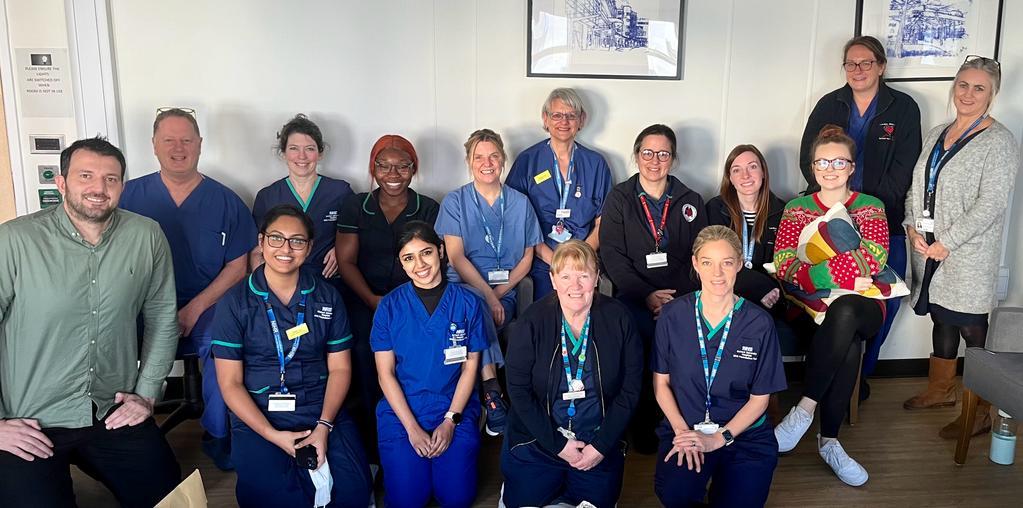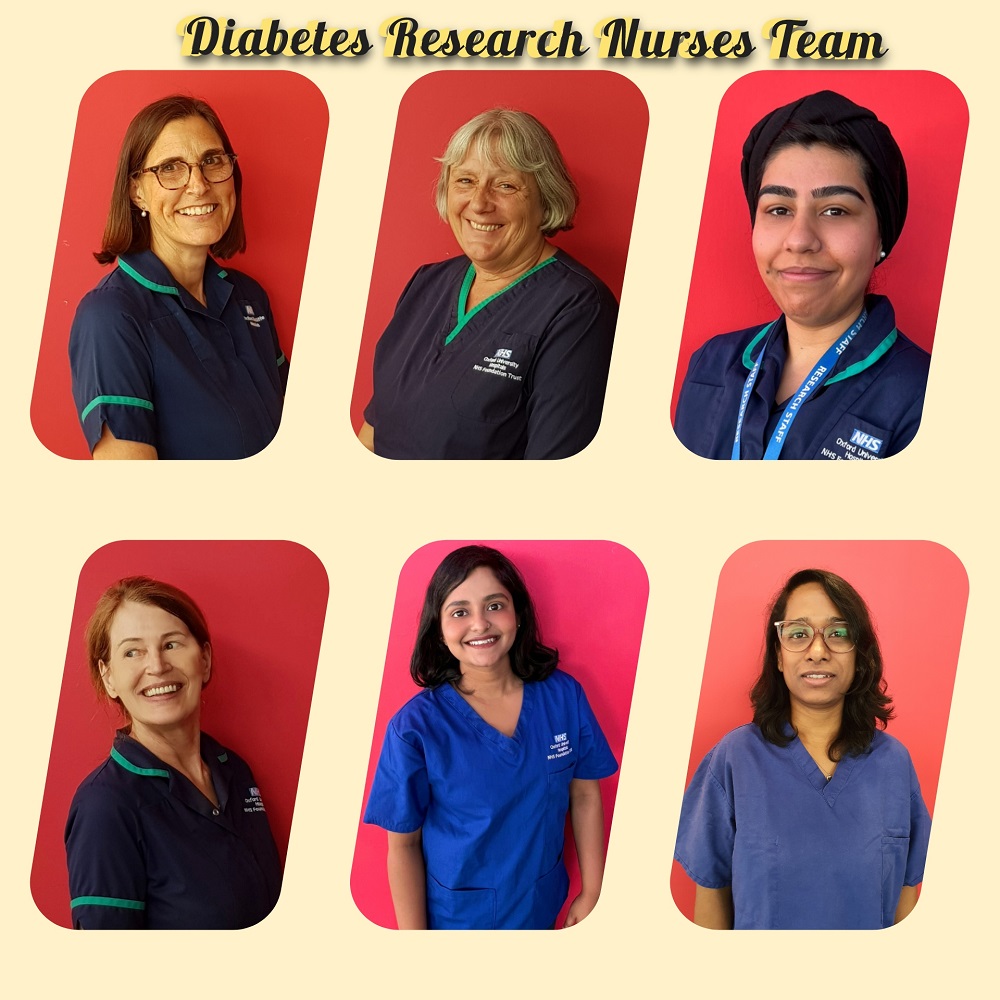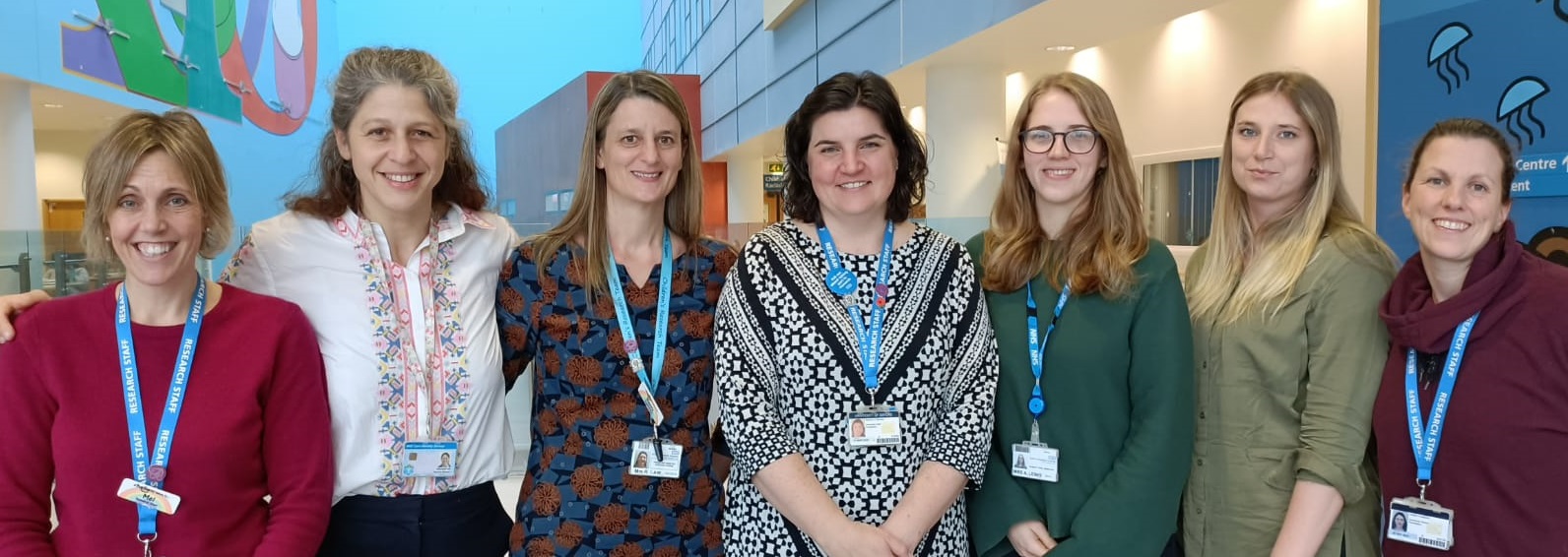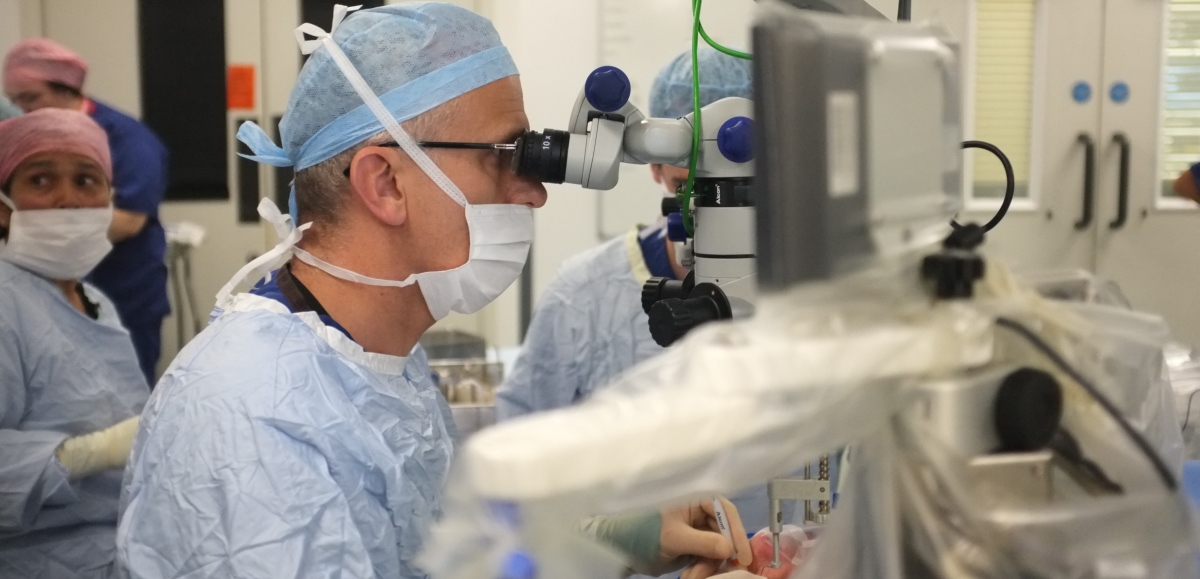Quick Links
The NIHR Clinical Research Network Thames Valley and South Midlands supports studies across 30 medical specialities. See the tabs below to find out more.
The NIHR Clinical Research Network Thames Valley and South Midlands supports studies across 30 medical specialities. See the tabs below to find out more.
The NIHR supports research being delivered through 30 speciality therapy areas. Each speciality is made up of expert clinical leaders and practitioners who work at both national and local levels to ensure that studies are delivered successfully and to promote awareness of research opportunities for participants to take part in. The speciality groups also support the dialogue between the life sciences industry and charities to ensure the pipeline of research studies and to facilitate the involvement of participants to make research more effective. Visit the main NIHR website to find out what is happening nationally in the different specialities.
Heart and circulatory diseases are a major cause of deaths in the UK, leading to over a quarter of deaths of known causes. Although there has been a major improvement in the treatment and understanding of cardiovascular disease in recent decades, statistics show:
These figures show the scale of the challenges cardiovascular disease poses yet research has resulted in:
We know there is still work to do, which is why the NIHR has invested in support for cardiovascular research across our region.
We are pleased to offer the opportunity to take part in a range research trials of covering:
Studies include:
To find studies you could take part in visit the Be Part of Research website.

"The NHS Cardiac Research Team at the John Radcliffe Hospital, Oxford has supported research for over 10 years. Our team has grown rapidly and now includes nine research nurses and four non-clinical team members. The team supports studies across all aspects of adult cardiac research including stent studies, heart valve, electrophysiology and heart failure device trials. We have a wealth of clinical and research experience and are led by clinical academics of national and international standing."
Contact:
Rachel Bates: Rachel.Bates@ouh.nhs.uk, 01865 740422
Katharine New katharine.new@ouh.nhs.uk 01865 228324
Ellie Corps: Ellie.Corps@ouh.nhs.uk, 01865 223173
"Here in Wycombe we have a dedicated cardiac and stroke receiving unit and coronary care ward. We have a large research team and try to offer every patient a chance to participate in research. This means we have a wide range of studies covering the majority of themes within the cardiovascular theme from simple questionnaires to trials of new medications and devices."
Contact: 01494 425901 / Mari.kononen@nhs.net.
"We are a relatively small though dynamic cardiovascular research delivery team. We deliver a variety of studies across the acute wards, Coronary Care Unit and outpatients, covering a variety of cardiovascular conditions. In partnership with Professor Attila Kardos we work closely with cardiology consultants who are very supportive and positive about supporting research at the trust.
"The research delivery team consists of Diane Scaletta, Gabriela Bega and Annie Rose. Between us we have over 45 years of nursing experience covering acute medicine, cardiology, critical care, cardiac rehabilitation and emergency medicine. We are supported by coordinators Felicity and Iqbal who are responsible for ensuring the correct governance of our studies.
"We would be happy to discuss any potential studies you may be interested in."
Contact: 01908 997557 / 997324 or diane.scaletta@mkuh.nhs.uk / gabriela.bega@mkuh.nhs.uk
"I have worked in cardiology at the Royal Berkshire Foundation trust since 1998.
"Cardiology research has grown, we now have 10 active cardiology consultants who are responsible for numerous research studies and clinical trials.
"The Cardiology Department has gained the Award of Excellence from the Joint Academic Board (JAB) of the University of Reading and the trust and we are now named The University Department of Cardiology.
"We are a small team consisting of myself, Abigail Whyte with our medical lead Dr Charlie Mckenna.
"The core cardiology research team is myself, research nurse Leanne Dymott, research assistant Sharon Mark, Professor Neil Ruparelia and Dr Charlie McKenna.
Contact: 0118 3227260 or mark.brunton@royalberkshire.nhs.uk.

The University of Oxford, Research Nurse, Midwifery and Support Team for the Division of Cardiovascular Medicine is led by senior research nurse Catherine Krasopoulos. The team comprises of eight research nurses, a research midwife and three research assistants. The division supports research into Magnetic Resonance Imaging (MRI) and spectroscopy, cardiac CT scanning, echocardiography, cardiac and vascular physiology. It is based in three clinical research facilities at the John Radcliffe Hospital, Oxford:
• Oxford Centre for Clinical Magnetic Resonance Research (OCMR)
• Cardiovascular Clinical Research Facility (CCRF)
• Acute Multidisciplinary Imaging and Interventional Centre (AMIIC)
The teams are active across a diverse portfolio of research, from supporting basic science and PhD fellowship studies, to leading observational studies and delivering industry and university sponsored clinical trials.
Studies cover:
• Arrhythmia
• Cardiomyopathy
• Congenital cardiovascular disease
• Heart failure
• Heart valve disease
• Hypertension
• Heart disease in women and pregnancy
• Hypertrophic cardiomyopathy and inherited cardiovascular disease
• Obesity
• Obesity and heart disease
The Clinical Research Coordination Team for the Division of Cardiovascular Medicine, headed by Dr Hanan Lamlum, plays a critical role in providing guidance on the administration of clinical trials and studies. Working alongside investigators, sponsors and the team, they oversee the set-up and safe conduct of research in line with regulatory requirements.
Contact: 01865 225232 or cvm_nurses@cardiov.ox.ac.uk
Supporting and caring for people with diabetes is one of the biggest challenges to the NHS.
The cost to the NHS equates to £25,000 per minute, £14 billion per year or 10% of the total NHS budget.
Diabetes puts people at an increased risk of lower limb amputations, kidney and cardiovascular diseases, eye and nerve damage. This results in both a reduction in their life expectancy and a significant impact on their quality of life. About 20,000 people per year die prematurely as a result of diabetes.
Although these figures and statistics are startling, research supported by the NIHR has helped to improve nearly every aspect of the lives of people living with diabetes, from prevention to treatment and ultimately cure.
The diabetes centre in Oxford is one of 15 sites in the UK that are part of the type 1 immunotherapy consortium.
Immunotherapy approaches for type 1 patients are strong candidates for disease modification approaches, having the potential to change the course of progression of the loss of insulin producing beta cells that causes diabetes. Contact your local diabetes team or research nurse for more information about taking part in immunotherapy research.
Many studies are aimed at improving the outcomes for diabetes patients through treatment and care. These range from identifying medication tailored to individuals to improving education and information for patients.
Some studies are into the biological and genetic profile of diabetes patients to develop precision medicines through collecting biological samples, physiological measurements or consent to access clinical data.
Speak to your GP or research nurse about taking part in research in the community or in hospital. Search for studies on the Be Part of Research website.

"I am a senior research nurse covering diabetes, metabolic and endocrine disorders based at the Oxford Centre for Diabetes Endocrine and Metabolism, Churchill Hospital, Oxford. I have worked in the NHS for 30 years and during that time have worked on a variety of medical and surgical wards and spent 13 years working in the community as a district nurse. I have always been interested in research and took up the role of diabetes research nurse in 2010. I lead a team of nurses working on a variety of studies in type 1 and type 2 diabetes as well as metabolic and endocrine studies."
Contact: 01865 857146 or nicky.mcrobert@ouh.nhs.uk.
To take part in our studies contact ChildrensResearch@ouh.nhs.uk / 01865 231729 / 01865 857787

The team includes (from left to right) Melanie James, Dr Rachel Besser, Rebecca Law, Rebecca Beckley, Abigail Lewis, Rebecca Harmer and Kirsten Beadon who, between them, have over 30 years research experience. We are a team of research nurses, doctors, and admin staff who work closely with the clinical team to offer opportunities to children with diabetes, or who are at risk of developing diabetes, to be part of research.
Current studies:
Completed studies:
"I am a registered nurse and qualified in 1985. I then did my midwifery training for 18 months and left to work in general practice. For over a decade I have worked in diabetes research for the NIHR at the Royal Berkshire Hospital, Reading. I also help to co-ordinate research in the region and work with colleagues on both commercial and non-commercial studies. I support other research nurses in the region."
Contact: 0118 3228929 or juliesutton@nhs.net.
"We are keen to speak to anyone with either type or type 2 diabetes who would be interested in taking part in research studies and playing a part in improving diabetes care for the future. We have a range of studies that may be of interest to you such as comparing medication in type 2 diabetes insulin used in pregnancy in type 1 diabetes. Please feel free to contact me if you would like any further information about the exciting opportunities that we have to make a difference in the treatment of diabetes. We are also keen to support any GP surgeries that may wish to increase the research activity in their practice.”
Contact Ruth Penn, lead research nurse, on 01296 831326 / 07917 555876 / ruth.penn@nhs.net or Sonia Mariampillai, research nurse, 01494 426587 / sonia.dyal@nhs.net
“Throughout my career I have had an interest in diabetes care and education. I have worked as a Desmond diabetes programme educator in Milton Keynes for the past 10 years. I have been working at Milton Keynes Hospital since 2017, initially in cancer research, then moving into diabetes. Previously I also worked in obesity research for over five years and in general practice in the Milton Keynes area for eight years. I am happy to hear from you if you are interested in taking part in diabetes research.”
Contact 01908 996652, extension 86652 / louise.moran@mkuh.nhs.uk.

The Oxford Health NHS Foundation Trust Mental Health Research Delivery Team has Clinical Research Assistants (CRAs) embedded within clinical teams across Oxfordshire and Buckinghamshire. The CRAs work with clinicians to promote research opportunities and participation for staff and service users. To learn more visit our website or email mentalhealthresearch@oxfordhealth.nhs.uk.
The trust conducts research into many different aspects of mental health. Here are some examples of the types of studies on our portfolio:
We have two priority studies for which we are seeking volunteers:
Urban Mind: service users who have had a first episode of psychosis are trialling the use of a new smartphone app which records the impact of an individual's environment on their mental health. In time it is hoped that this will help to predict the chance of relapse in patients with psychosis.
Pattern: uses two non-invasive devices to measure various physical characteristics (e.g. body composition - fat and muscle mass, heart rate, oxygen levels) in people with and without mental illness. We will evaluate any similarities or differences in the measured physical characteristics across different mental health and physical health diagnoses.
To learn more visit our website or email mentalhealthresearch@oxfordhealth.nhs.uk

We have a small team working in our community mental health teams, Improving Access to Psychological Therapies (IAPT) services and inpatient wards. We work with clinicians, service users and carers to promote and offer opportunities get involved in research.
Contact the team on research@berkshire.nhs.uk or 0118 378 5264.
Current research includes:
GLAD aims to explore the genetic predictors and environmental risk factors for depression and anxiety. Participants will be given the opportunity to donate a saliva sample to the NIHR Mental Health Biobank, which we hope will be a leading resource for future health and social care research. Anyone who has been diagnosed with or treated for anxiety or depression at one stage in their lifetime can participate in this study.
ASC-UK focuses on the lives of adults on the autistic spectrum and understanding their experiences as they age. Study participation involves completion of various questionnaires.
Imagery Based Emotion Regulation (IBER) looks at whether a psychological therapy can help with the symptoms of anxiety within people already diagnosed with bipolar disorder.
Triangle aims to examine whether the addition of a patient and carer skill sharing intervention improves long term patient wellbeing following hospital treatment for anorexia. Participants and their carers will be involved in the study for 18 months.
PPIP2 Study aims to define the prevalence of psychosis that is caused by an antibody mediated disorder. Participants complete a short questionnaire and provide a blood sample which is then tested and results are shared with them and the clinical team.
EYE-2 is a randomised controlled trial that aims to evaluate the effectiveness of a team based intervention in Early Intervention Psychosis (EIP) teams.
Molecular Genetics of Adverse Drug Reactions (MolGen) aims to define the genetic and non-genetic risk factors predisposing to adverse drug reactions to clozapine.
Thrive aims to assess the effectiveness of Virtual Reality cognitive treatment for persecutory delusions. Participants will either receive four sessions of cognitive treatment or four sessions of relaxation.
GameChange aims to test automated Virtual Reality (VR) cognitive therapy for patients with fears in everyday social situations.
Find mental health studies taking place in your area using our online map.
About two million people in the UK live with a form of visual impairment, about one in 30 people. As more and more people live longer, conditions such as age related macular degeneration and glaucoma become more common.
The Eye Research Group Oxford (ERGO), based in The Oxford Eye Hospital, was set-up in 2009 to support high quality clinical research into eye diseases. ERGO has close links with the University of Oxford and collaborations UK-wide. We have over 30 studies at present, and some highlights are detailed below.
The ERGO team has more than 16 members including clinical lead, Susan Downes; clinical research nurse manager, Alexina Fantato; research nurses; research project administrators; research coordinators and a research photographer and graphic designer.
Oxford is now a centre for the European Reference Network (ERN) and has been designated as a centre of excellence for Ophthalmology rare diseases within this network. The lead is Susan Downes and the coordinator Alexina Fantato.
The Somnus Sleep Wake study investigated the impact of eye disease on body-clock function, identifying a number of individuals with impaired sleep. The follow-on trial, Sandman, is recruiting patients with disrupted sleep and is led by Susan Downes and Russell Foster with coordinators Colm Andrews and Sophie Marlowe.
Robert MacLaren leads the surgical programme for gene therapy and clinical trials into the potential of a robotic arm to provide surgical precision during eye operations. Robert MacLaren also led a trial on implanting retinal prostheses (or the bionic eye) for end-stage retinal disease. This was a fruitful collaboration and the study is now closed and no longer recruiting patients.

Susan Downes leads the Oxford team on the UK Inherited Retinal Disease Consortium (UKIRDC), working with Stephanie Halford, clinical genetics, Clare Arnison-Newgass, and Lidia Milla, who liaise with families to help find a genetic diagnosis by identifying new variants in new and known genes. This is vital in establishing a diagnosis, enabling genetic counselling regarding inheritance patterns and disease prognosis.
The pioneering gene therapy trials programme, the largest in the world, is led by Professor Robert MacLaren, who heads a large laboratory research team as well as the clinical support team including Anna Rudenko and Brian McCann. This is seeing promising outcomes in patients with rare inherited eye disease. Patients can be affected at any age and inherited retinal diseases are characterised by increasing visual difficulties over time, thus this treatment aimed at stabilising the condition is an important innovative therapy.

There are also many studies for more common conditions such as age-related macular degeneration (AMD). Treatments have come a long way for ‘wet’ AMD and visual impairment has decreased significantly since the introduction of intravitreal anti-VEGF eye injections to treat the condition. These injections help to prevent the formation of abnormal, leaky blood vessels at the back of the eye. Untreated these lead to scarring and irreversible damage. It is only through testing in clinical trials that new, longer lasting drugs are identified.
Telangiectasia Type 2 (MACTEL) is a condition characterised by abnormal blood vessel development at the macula leading to visual loss over time. Peter Charbel-Issa leads on this, assisted by Daniel Buttress working together with The Lowy Research Medical Centre to create a registry of patients, collect blood samples for genetic studies and detailed clinical information about the condition. A new treatment has been developed as a result of earlier studies. Selected patients with MACTEL in Oxfordshire may be eligible for this treatment.
One of ERGO’s research priorities, led by C.K Patel, and supported by clinical research assistant Caroline Justice, is to improve care of premature babies who are at risk of visual impairment from a detached retina. This includes developing innovative ways of taking pictures of the retina.
The global rise of diabetes is associated with an increase in complications, including diabetic retinopathy, which is a leading cause of vision loss. In two studies co-ordinated by the Northern Ireland Clinical Trials Unit , EMERALD and DIAMONDS, Samia Fatum leads as the principal investigator in Oxford to examine whether it is safe for stable treated patients to be followed up by obtaining adequate imaging of the back of the eye that will be interpreted by trained imaging technicians. This would remove the need to be seen by an ophthalmologist and assess whether patients find this acceptable.
The DIAMONDS study examines whether a newer laser technology, subthreshold micropulse laser, works as well as the conventional laser and whether it is associated with fewer side effects. We are also working with Liz Pearce, a researcher from King's College London, who is taking forward previous research by Christine Kiire and Victor Chong to evaluate markers of inflammation in the blood, trying to correlate these with the patterns of diabetic eye disease, in order to better understand its mechanisms. Investigating the role of genetic predisposition to developing different types of diabetic eye disease is also ongoing as part of the CGDME study.
We are carrying out research into personalising therapies so our patients have the best chance to be on a treatment which gives them the best response. Our aim is to broaden the treatments we can offer for patients with uveitis, or inflammation within the eye, through the HUMBOLDT trial led by Sri Sharma.
Investigating methods of how to quantify the impact of eye disease on vision, the visual pathway, visual performance, the brain, as well as its effect on mood and wellbeing involves a range of techniques. These include measurement of vision led by Jasleen Jolly and imaging of the retina using Adaptive Optics Scanning laser ophthalmoscopy led by Hannah Smithson, Mital Shah, Laura Young and Susan Downes. Using MRI imaging to see how vision is processed in the brain and what occurs in different disorders is being led by Holly Bridge’s team. The information can then be used to assess how well new therapies are working as well as to better understand the effect of the disease. We are also interested in the psychological impact of eye disease.
For more information visit the Eye Research Oxford website or contact ergo@ouh.nhs.uk.
Find ophthalmology studies in your area using our online map.

With the support of the NIHR Clinical Research Network Thames Valley and South Midlands, there has been a step change in research in primary care, with over half of GP practices in the Thames Valley region recruiting more than 7,000 patients into 60 studies in 2020/2021.
These successes have been driven by the network’s five-person facilitator team, which works closely with practices and commissioners to provide opportunities to conduct research, support to get trials up and running and training and development for practice staff.
The network provides funding for GP and nurse time to run studies and direct support through the Peripatetic Clinical Research Nursing Service, a team of 12 nurses who work in surgeries and remotely to run studies, often alongside practice nurses, as well as providing training and support. Further support is available to practices through four GP champions who work closely with study teams and practices to ensure research is feasible and deliverable in primary care.
The LCRN is the lead network for COVID-19 trials PRINCIPLE, looking at treatments at home, and RAPTOR, into community testing. In 2020, the network supported two GP practices to run the ENSEMBLE 2 vaccine trial from the NIHR and the Janssen Pharmaceutical Companies of Johnson & Johnson, the only practices in the UK to take part.
For more information about how the network can support GP practices, visit the Primary Care Research Toolkit website, email primarycareresearch@oxfordhealth.nhs.uk or call 01865 227534 .
Anaesthesia, Perioperative Medicine and Pain Management
Dementias and Neurodegeneration